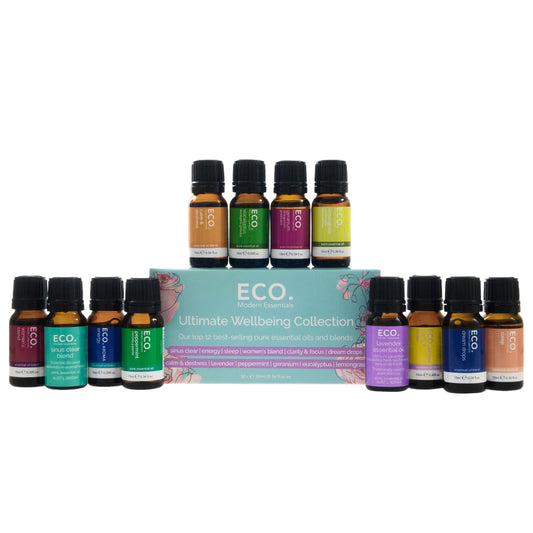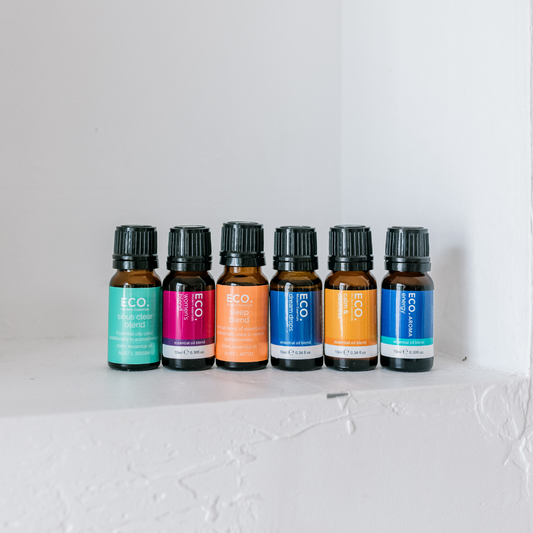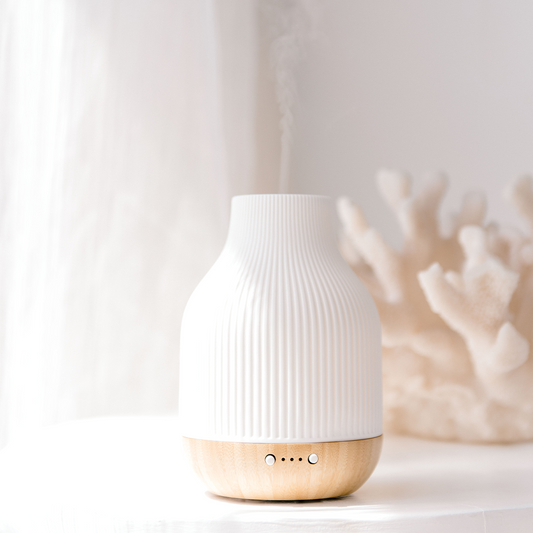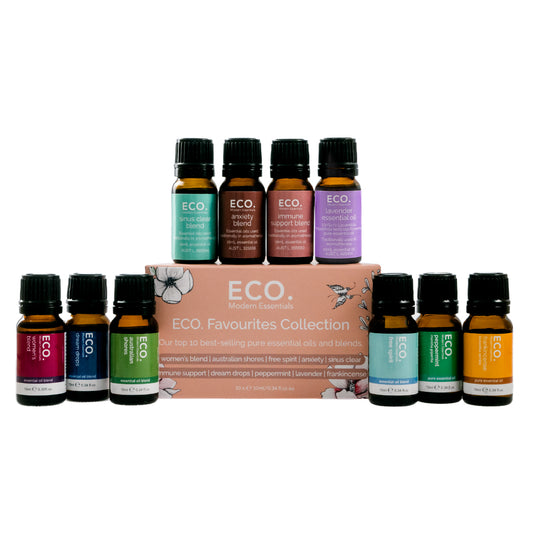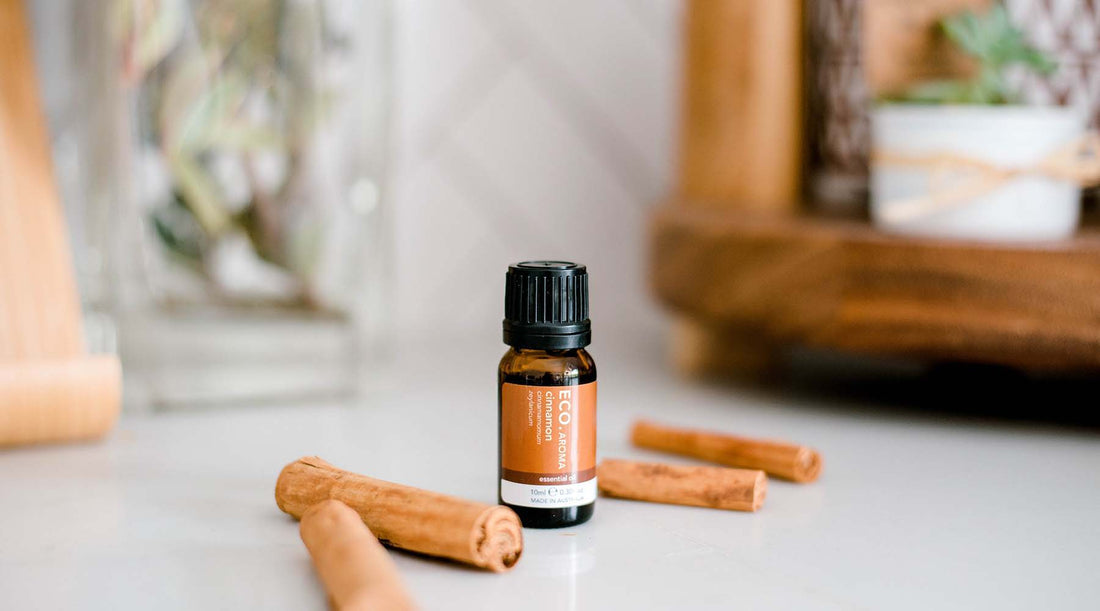
How are Essential Oils Antiviral and Antibacterial?
Are all essential oils antibacterial
Each essential oil is made up of a complex combination of chemical constituents. Most essential oils contain between 20 and 60 different natural compounds making their unique aroma and identity. Usually only 2 of 3 of these chemical constituents are present in a high concentration with the remaining constituents only found in a trace amount. Research has found many of the chemical constituents present in essential oils to be effective against a variety of pathogens. Thus, the antiviral and antibacterial properties of essential oils can be determined by the type of chemical constituents present in the essential oil.
The chemical constituents of essential oils vary according to the plant species, geographic location, growth stage of the plant and the extraction method. The concentration of each chemical compound found in a particular essential oil is determined using GC/MS testing (Gas-Chromatography mass spectrometry). The results are shown in a graph where the concentration of each compound is measured.
Antibacterial effects of essential oils
Research has shown that the chemical compounds present in essential oils may be able to disrupt the cell membrane of some types of pathogens by increasing membrane permeability, inducing leakage and interrupting the cellular metabolism. The antimicrobial effect of most essential oils was correlated to the occurrence of the major compounds such as carvacrol, thymol, cinnamic aldehyde, menthol, eugenol, linalyl acetate and p-cymene. The best way to benefit from the antiviral and antibacterial properties of essential oils is by diffusing them to purify the air, add them to cleaning products or apply them topically under the guidance of your Aromatherapist to help fight off infections. Research has proven many essential oils to be effective against Staphylococcus aureus, E. coli and Pseudomonas aeruginosa strains.
Which essential oils are antibacterial and antifungal
The essential oils of Cinnamon, Clove, Thyme, Oregano, and Rosemary have been shown to possess strong antibacterial activity against some common types of bacteria strains such as Salmonella typhi, Staphylococcus aureus, and Pseudomonas aeruginosa. Other essential oils such as Eucalyptus, Tea Tree, Lavender, Lemon, Lemon Myrtle and Lemongrass have been shown effective against a range of pathogens. Essential oils of Basil, Fennel, Lemongrass, Oregano, Rosemary and Thyme have been shown to be effective against a variety of fungal infections.
Cinnamon Essential Oil
Cinnamon is one of the most powerful antibacterial essential oils. It acts as an air purifier when added to a diffuser blend and is great to use in cleaning products. Research demonstrated that the antibacterial activity of cinnamon is due to bioactive phytochemicals such as cinnamaldehyde and eugenol.
Clove Essential Oil
Clove is a broad spectrum antimicrobial and has been shown to have antibacterial, antifungal and antiviral propertoes. Research demonstrated Clove to be have the strongest antibacterial activity amongst essential oils tested against a variety of strains including Salmonella typhi, Staphylococcus aureus, and Pseudomonas aeruginosa. Its antimicrobial effects has been correlated to the occurence of major compounds such as carvacrol, thymol, cinnamic aldehyde, eugenol, and p-cymene.
Oregano Essential Oil
Oregano is a general tonic that can be used to maintain health due to its powerful antibacterial properties. Research has shown oregano to be effective against a variety of bacterial, fungal and viral infections. The principal constituents responsible for oregano's properties are carvacrol, thymol and p-cymene.
Lemon Myrtle Essential Oil
Prized for its incredibly wide range of antimicrobial actions. Lemon Myrtle has strong antibacterial, anti fungal and antiviral properties. Research proved Lemon Myrtle essential oil to be a versatile antibacterial agent inhibiting the growth of 12 different strains. It is a potent surface disinfectant and is great to use in cleaning products.
Lemongrass Essential Oil
Lemongrass is a versatile essential oil, with antibacterial, antiseptic, anti-fungal and anti-inflammatory properties. Research has shown Lemongrass essential oil to be effective against a variety of well-known pathogens as well as drug resistant organisms. A great addition to cleaning blends due to its antiseptic and antibacterial properties.
Antibacterial Essential Oil Blend Recipe
- 2 drops Peppermint essential oil
- 2 drops Thyme essential oil
- 2 drops Cinnamon essential oil
- 2 drops Lemon essential oil
Fill the water chamber of your diffuser with water and add the essential oils. Diffuser to purify the air.
Looking for more immune boosting recipe blends? Have a look in our Aromatherapy for everyday wellness book.






